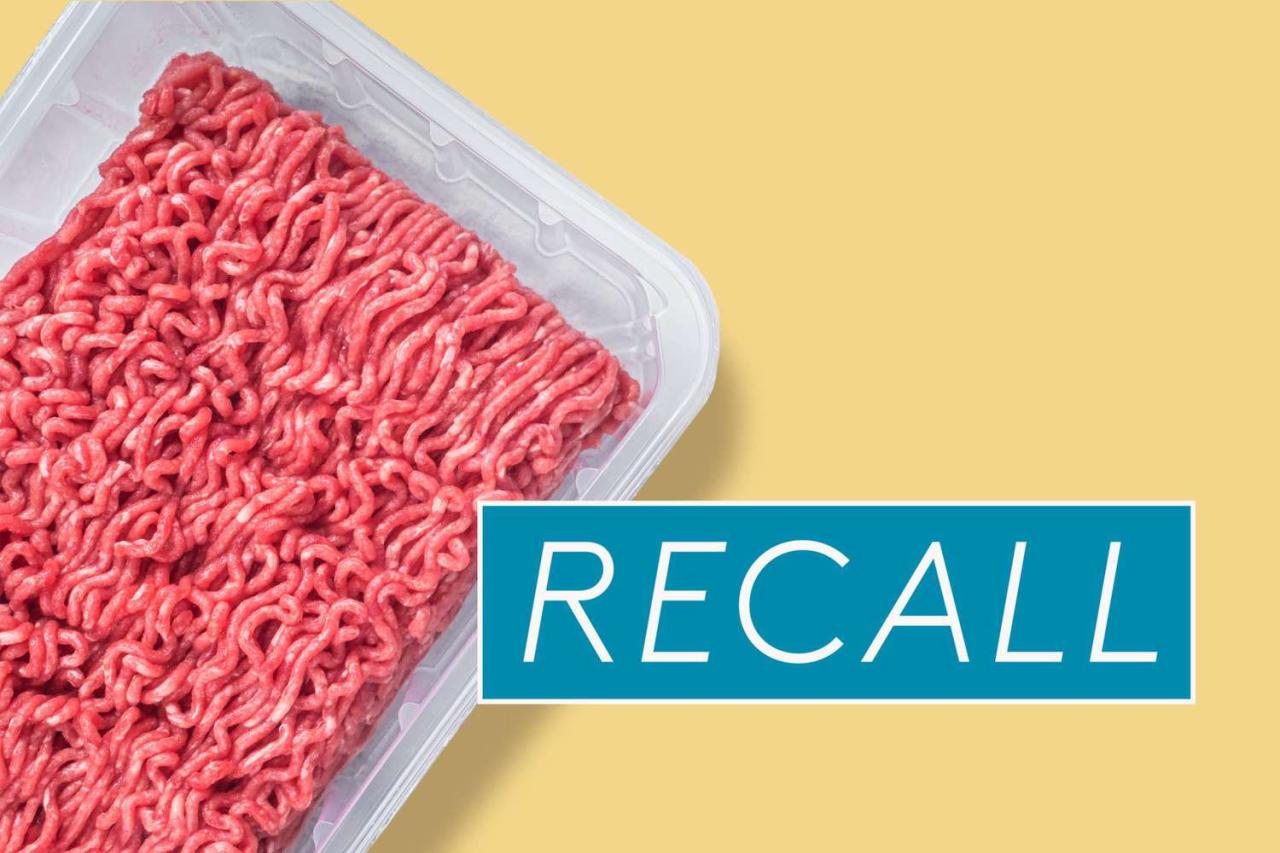Okay, so picture this: a massive ground beef recall. It’s not just about some dodgy patties; we’re talking a ripple effect that slams into the entire food system. From grocery store shelves to the farms where the cows grazed, this recall throws a wrench into everything. This means looking at how the supply chain gets totally messed up, the health scares for consumers, and what we can do to prevent this kind of thing from happening again. It’s a messy situation, but let’s break it down.
This analysis will delve into the immediate and long-term consequences of a significant ground beef recall, examining its impact on various stakeholders, from large corporations to small family-owned businesses. We’ll explore the complexities of food safety regulations, consumer behavior, and the critical role of effective communication in mitigating crises like this. The goal? To understand how a seemingly isolated incident can create widespread disruption and what steps can be taken to improve the system.
Impact on Food Supply Chain
A ground beef recall ripples far beyond the immediate removal of contaminated product from store shelves. The effects cascade through the entire food supply chain, impacting producers, processors, distributors, and ultimately, consumers. Understanding these ramifications is crucial for assessing the overall economic and public health consequences of such events. You also can understand valuable knowledge by exploring Bayern Munich’s victory: Jamal Musiala’s outstanding performance.
Immediate Effects on Distribution Networks
The immediate impact on distribution networks is a rapid and widespread halt in the movement of affected ground beef products. Distribution centers quickly initiate recalls, pulling implicated products from their inventory and halting further shipments. This necessitates a complex and coordinated effort involving tracking and tracing systems to identify all points in the distribution chain where the recalled product might be located. Transportation companies are involved in the retrieval of the product, adding another layer of complexity and cost to the process. This swift action is essential to prevent contaminated meat from reaching consumers, but it simultaneously creates significant logistical challenges.
Disruption to Processing Plants and Slaughterhouses
Processing plants and slaughterhouses face considerable disruption following a recall. Production lines are halted, requiring thorough cleaning and sanitation to prevent cross-contamination. This downtime translates to lost production and revenue. Investigations into the source of contamination often lead to temporary closures and even long-term operational changes, including increased quality control measures and enhanced sanitation protocols. Workers may experience temporary layoffs or reduced hours, depending on the scale of the recall and the plant’s capacity to adapt. The disruption can extend beyond the immediate facility, affecting supplier relationships and potentially delaying shipments of other products.
Economic Consequences for Producers, Distributors, and Retailers
The economic consequences of a ground beef recall can be substantial and far-reaching. Producers face significant financial losses due to the destruction of recalled product, along with potential legal liabilities. Distributors incur costs associated with recall management, including transportation, storage, and administrative expenses. Retailers experience losses from product removal, potential damage to their reputation, and decreased consumer confidence. The overall economic impact depends on the scale of the recall, the affected brands, and the speed and efficiency of the response. Smaller businesses often bear a disproportionately higher burden due to their limited financial resources and less robust infrastructure for managing such crises. Obtain a comprehensive document about the application of Stefanie Hertel’s Christmas tour: absence of her father explained that is effective.
Retailer Inventory Management and Loss Mitigation Strategies
Food retailers employ various strategies to manage inventory and mitigate losses during a recall. These include sophisticated inventory tracking systems, rapid product removal from shelves, and effective communication with consumers. Many retailers implement robust recall response plans that Artikel procedures for identifying, isolating, and removing affected products. They often collaborate with suppliers and distributors to expedite the recall process and minimize disruptions to their operations. Promotional offers and discounts on unaffected products can help to maintain consumer confidence and stimulate sales. However, despite these efforts, retailers still face considerable financial losses due to inventory write-offs and potential damage to their brand image.
Comparative Impact on Different Sized Businesses
| Business Size | Sales Loss | Inventory Write-off | Staffing Changes |
|---|---|---|---|
| Small | Potentially devastating, high percentage of annual revenue | Significant, potentially leading to insolvency | Temporary layoffs or reduced hours likely |
| Medium | Substantial, impacting profitability | High, requiring significant financial resources | Possible temporary layoffs, adjustments to work schedules |
| Large | Significant, but manageable due to larger revenue base | High, but less impactful due to larger financial reserves | Minimal impact, possibly some reallocation of staff |
In short, a ground beef recall isn’t just about bad meat; it’s a wake-up call for the entire food industry. From farm to table, every link in the chain needs to be scrutinized. Better tracing, improved safety protocols, and transparent communication are key to regaining consumer trust and preventing future crises. The economic fallout is real, but the potential for long-term damage to consumer confidence is even greater. It’s time for a serious overhaul to protect both our wallets and our health. Enhance your insight with the methods and methods of Donald Trump’s Pam Bondi Attorney General nomination controversy.

